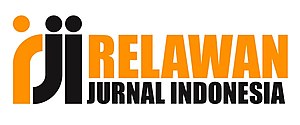Menjadi Pembelajar yang Mandiri: Mengungkap Strategi Belajar Bahasa Ingrris secara Ototidak
DOI:
https://doi.org/10.35960/pimas.v3i3.1482Keywords:
Self-directed learning, English, autonomous learner, short movie, vocabularyAbstract
Self-directed learning has become increasingly important in a dynamic world, with English as the key to global opportunities in education, employment, and cultural exchange. This service activity, conducted at SMK N 1 Purwokerto, aims to encourage students to become autonomous learners in English language acquisition. Through innovative approaches such as lectures, watching short films, and interactive games, students are provided with practical strategies for self-learning. The results of the activity showed an increase in students' motivation and engagement in English learning. Methods such as watching English films have proven effective in enriching vocabulary and improving listening comprehension. Recent studies support the effectiveness of these methods, showing that audiovisual input and the use of subtitles can significantly aid language learning. By providing students with the necessary skills and tools, these activities successfully create a supportive and motivating learning environment, preparing students to become successful independent learners.
References
Al-Mahrooqi, R., & Denman, C. (2020). "Issues in English Education in the Arab World." Springer.
Crystal, D. (2019). "The Cambridge Encyclopedia of the English Language." Cambridge University Press.
Godwin-Jones, R. (2019). "Emerging Technologies: Autonomous Language Learning." Language Learning & Technology, 23(3), 4-9.
Johnson, M., Veletsianos, G., & Seaman, J. (2021). "Uptake and Perceptions of EdTech in Higher Education during the COVID-19 Pandemic." Journal of Online Learning, 25(1), 46-58.
Lee, J., & Lee, H. (2018). "Enhancing Self-Directed Learning through Educational Technology." Educational Technology & Society, 21(4), 125-137.
Little, D. (2016). "Learner Autonomy and Second/Foreign Language Learning." CILT.
Muñoz, C. (2022). Audiovisual input in L2 learning. Language, Interaction and Acquisition, 13(1), 125.
Pérez, M. (2022). Second or foreign language learning through watching audiovisual input and the role of on-screen text. Language Teaching, 55(2), 163.
Wei, R., & Fan, L. (2022). On-screen texts in audiovisual input for L2 vocabulary learning: A review. Frontiers in Psychology, 13.
Wu, H., Yu, P., Yang, S., & Chen, X. (2022). Video captioning effects on EFL listening comprehension and vocabulary learning. International Journal of Computer-Assisted Language Learning and Teaching, 12(2), 1.
Cárdenas-Claros, M. S., Sydorenko, T., Huntley, E., & Montero Pérez, M. (2023). Teachers’ voices on multimodal input for second or foreign language learning. Language Teaching Research.
Baard, P. P., Deci, E. L., & Ryan, R. M. (2004). Intrinsic need satisfaction: A motivational basis of performance and well-being in two work settings. Journal of Applied Social Psychology, 34(10), 2045-2068. https://doi.org/10.1111/j.1559-1816.2004.tb02690.x
Bronson, M. (2016). Autonomous motivation and well-being in nursing students: The mediating role of basic psychological needs. Journal of Nursing Education, 55(5), 271-276. https://doi.org/10.3928/01484834-20160414-04
Ganotice, F. A., Yeung, S. S., & McInerney, D. M. (2020). The role of autonomy support in predicting school engagement among Chinese university students. Learning and Individual Differences, 80, 101878. https://doi.org/10.1016/j.lindif.2020.101878
Reeve, J., Deci, E. L., & Ryan, R. M. (2018). Self-determination theory in the classroom. Motivation and Emotion, 42(1), 1-10. https://doi.org/10.1007/s11031-018-9693-1
Shen, B., McCaughtry, N., Martin, J., & Fahlman, M. (2009). Effects of teacher autonomy support and students’ autonomous motivation on learning in physical education. Research Quarterly for Exercise and Sport, 80(1), 44-53. https://doi.org/10.1080/02701367.2009.10599526
Downloads
Published
How to Cite
Issue
Section
License
Copyright (c) 2024 Tri Pujiani, Soali Muhammad, Ida Dian Sukmawati, Barlian Kristanto, Diannike Putri, Benny Krisbiantoro

This work is licensed under a Creative Commons Attribution-ShareAlike 4.0 International License.



.png)










